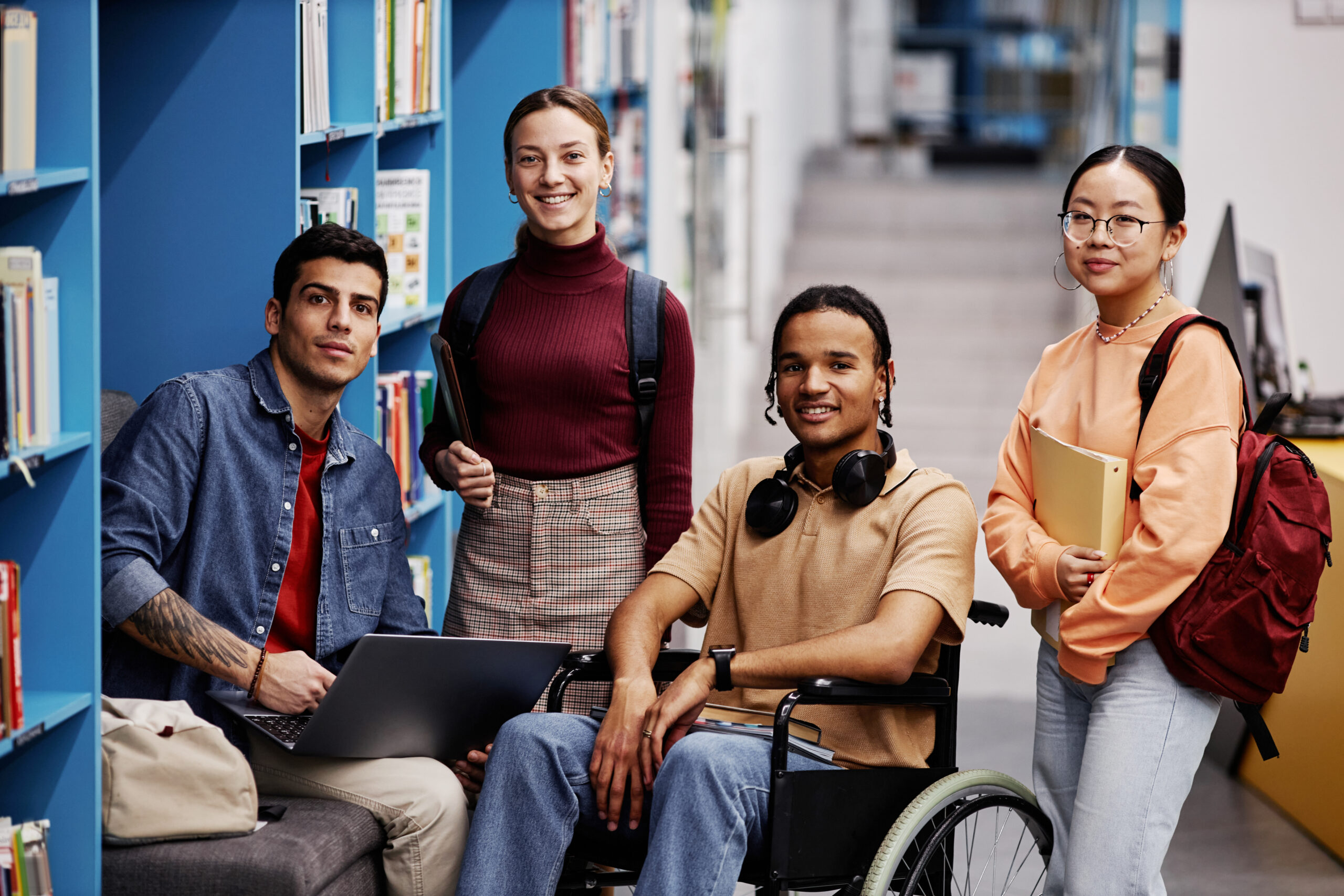Stories
Anonymous
Staff at College
Challenges in the educational journey
I faced significant educational challenges that were likely due to an undiagnosed learning disability that went unsupported. Despite being capable, I struggled without appropriate assistance, feeling like I slipped through the cracks. It wasn't until university that I discovered my potential and learned effective study strategies despite the lack of available technology and resources. Returning to school as an adult, I finally excelled with access to proper resources, strategies, and technology. Now, as an older adult facing hearing loss, I have a personal understanding of the struggles with disabilities, both theoretically and practically, and advocate for accessibility professionally. Reflecting on my journey, I recognize the importance of supporting individuals with disabilities, having experienced the challenges firsthand and witnessing them in my students for over two decades. With personal and professional experiences, I align with the need for support and accessibility in education. It's a unique merging of personal struggles and professional advocacy that led me to this work, understanding that many in the field of accessibility share similar paths, driven by a shared understanding of the challenges faced by individuals with disabilities.
Access to digital learning resources
I work in accessible technology and particularly digital technology. Throughout my career I've witnessed a steady progression towards more inclusion and more accessible tech. When I started in the field, for alternate formats, we would send out a request and a human read out the textbook onto a cassette tape that would get shipped to the student, which was a very timely process. I've been able to witness us move from that point, to being able to scan books and turn them in PDF files and the PDF could be read. Legislation such as the Accessibility for Ontarians with Disabilities Act (AODA) has also driven progress by requiring organizations to address policies for supporting individuals with disabilities. Additionally, there's been a notable push for Open Educational Resources (OER), which offer accessibility, digital flexibility, and cost-effectiveness. It's crucial for advocates like myself to promote the adoption of OER and move away from costly and inaccessible platforms associated with traditional publishers.
Attitudes and societal perceptions
I prioritize advocating for disability rights and access, focusing on shifting societal perceptions towards positivity rather than dwelling on negative attitudes. By promoting the effectiveness of accommodations, I've witnessed its transformative impact on educational environments and align with those who share our vision for inclusivity. While many instructors now understand and support accommodations for students, challenges persist with educators who doubt or question learners' needs. This issue, though less prevalent, still demands continued attention in 2024 to ensure inclusive educational environments for all. Engaging with educators resistant to creating inclusive classrooms has been a significant aspect of my advocacy efforts. It's essential to delve into their perspectives and understand why some cling to outdated views, despite societal shifts towards inclusivity. While society often dismisses divergent viewpoints, I believe there's inherent value in learning from those who don't align with our stance on accessibility. By acknowledging and addressing differing mindsets, we can craft messaging that fosters greater inclusivity and promotes accessibility as beneficial for all, rather than solely for individuals with disabilities.
Effectiveness of support systems
In both my personal and professional life, I heavily rely on assistive technology (AT) to enhance accessibility and accommodate my needs. For my own projects and daily tasks, I utilize various tools such as mind mapping and brainstorming software, as well as speech-to-text technology for dictation. Due to changes in my vision, I've recently needed to adjust my magnification settings to aid in reading and viewing materials more clearly. As someone with hearing loss, I rely on sound amplification devices, namely hearing aids, which play a crucial role in facilitating my participation and engagement. Professionally, I am deeply involved in training students across diverse disability categories on the use of assistive technologies. This includes both software and hardware solutions, as well as services aimed at supporting accommodation needs. Through my experience, I've come to realize the critical role of deliberate planning and strategy implementation in addressing accessibility needs, both for myself and my students. As I've aged and gained more experience in the education field, I've learned that everything must be intentional and carefully thought out. I strive to instill this mindset in my students as well, emphasizing the importance of deliberate planning and strategy development through meta-cognition.. When working with students, I make it a point to understand their strengths and weaknesses, allowing me to tailor my approach by leveraging their strengths while accommodating for their challenges. I utilize tools, technologies, and strategies to provide necessary accommodations and support. Institutional systems often fall short due to attitudinal barriers, like delayed adoption of accessible technologies and inaccessible textbooks.
Suggestions for institutional support
I believe implementing hybrid or hi-flex learning formats could greatly support accessibility needs. Before, I thought working with students with disabilities required face-to-face interaction, but the pandemic proved me wrong. Now, almost all my meetings are virtual, making accessibility easier with features like captions and file sharing. Virtual platforms allow for multiple means of communication, although it's not a perfect replacement for in-person interaction. Creating multimodal learning environments is crucial, moving beyond traditional lectures to more engaging methods. Providing content ahead of time and recording lectures are beneficial for both Universal Design for Learning (UDL) and accessibility. I advocate for using Open Educational Resources (OER) and offering authentic assessments rather than relying solely on multiple-choice formats.
